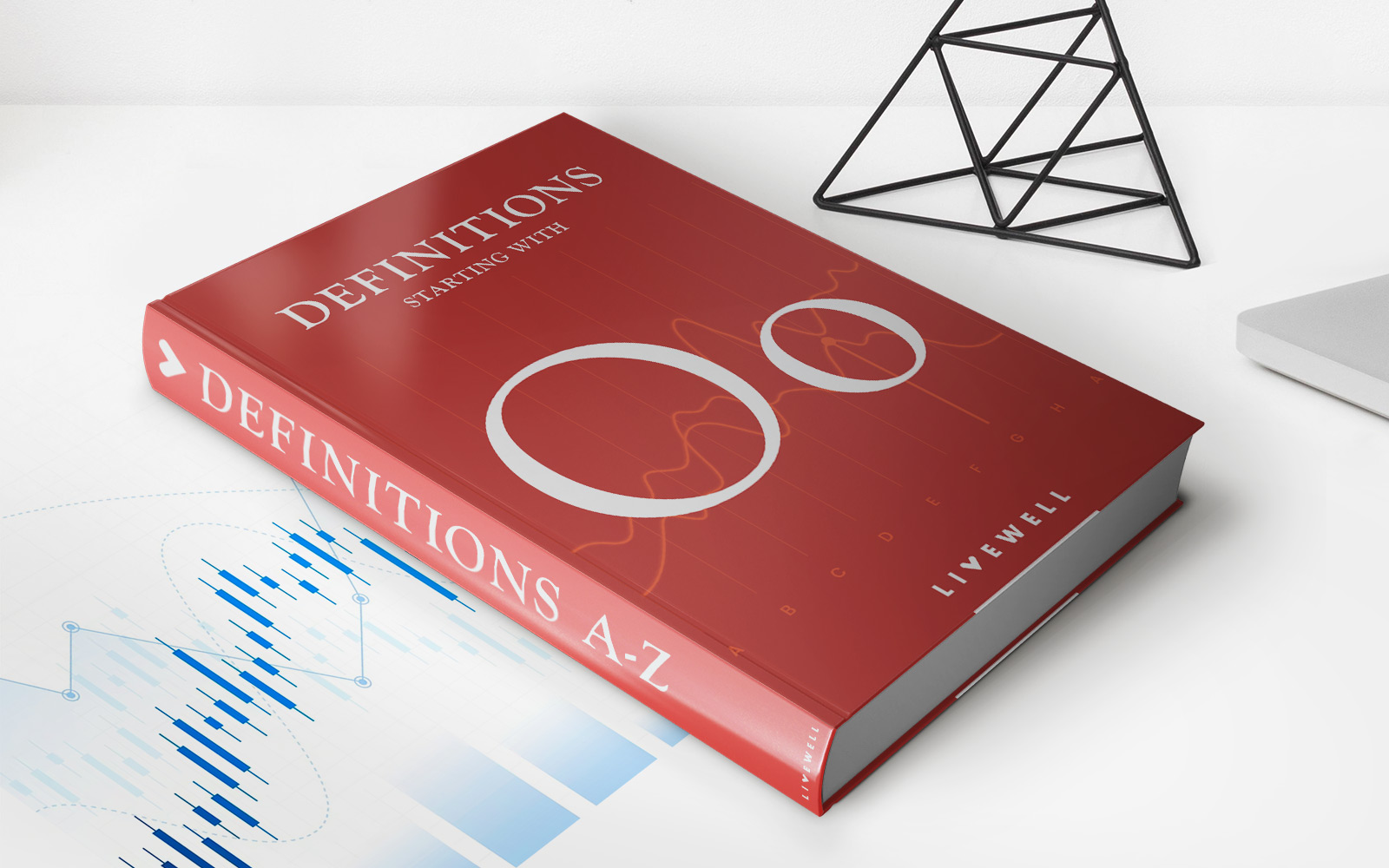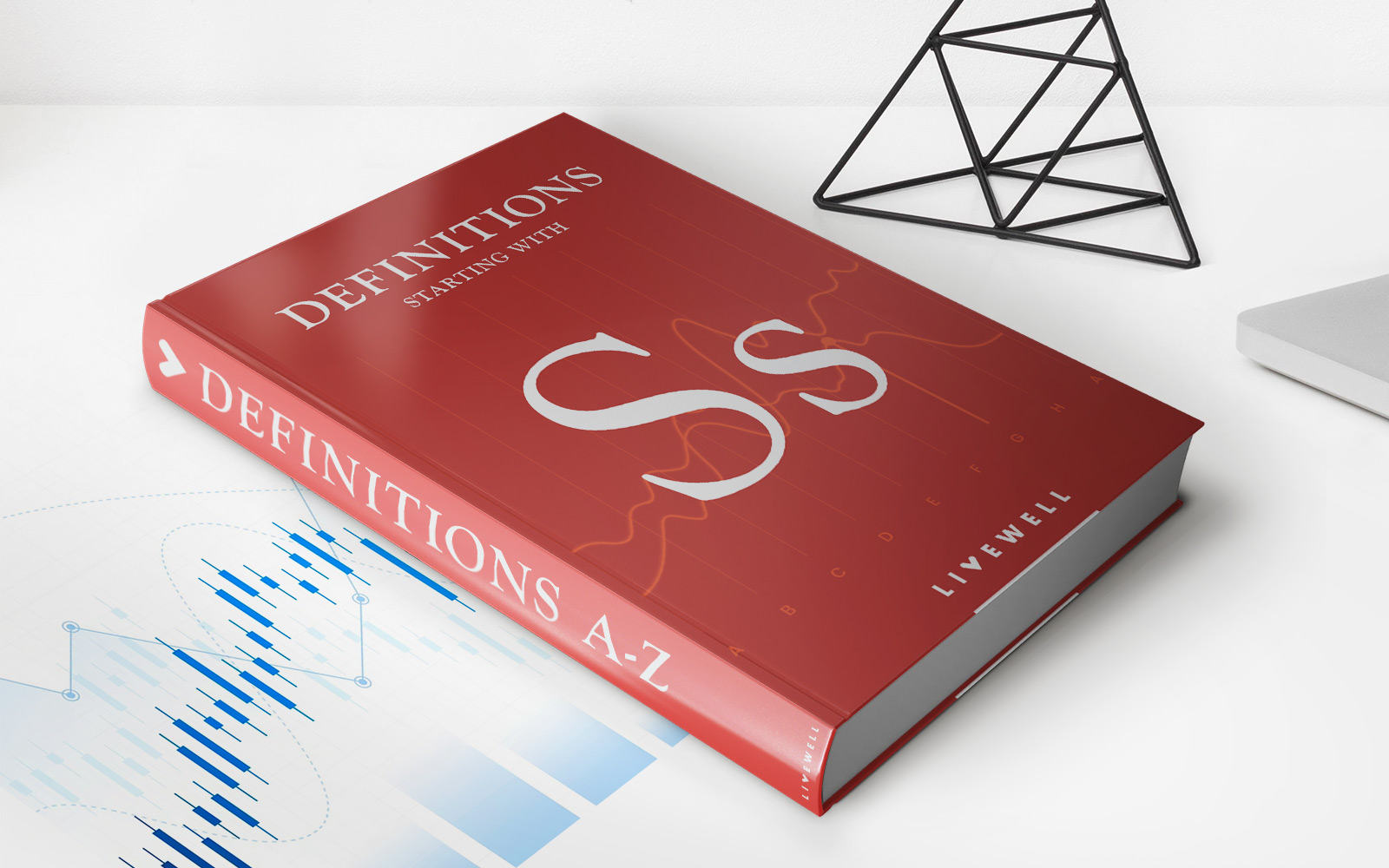Home>Finance>Which Entries On A Credit Report Will Decrease Your Credit Score


Finance
Which Entries On A Credit Report Will Decrease Your Credit Score
Modified: March 6, 2024
Learn how certain entries on your credit report can negatively impact your credit score and how to manage your finances effectively.
(Many of the links in this article redirect to a specific reviewed product. Your purchase of these products through affiliate links helps to generate commission for LiveWell, at no extra cost. Learn more)
Table of Contents
Introduction
Having a good credit score is essential in today’s financial landscape. A strong credit score opens doors to favorable interest rates on loans, credit cards, and even renting an apartment. On the other hand, a poor credit score can hinder your ability to secure credit or result in higher interest rates.
But what exactly goes into determining your credit score? While the exact algorithm used by credit bureaus may be a closely guarded secret, there are several key factors that have a significant impact on your credit score. One of these factors is the information found on your credit report.
Your credit report is a comprehensive record of your financial history, including information about your credit accounts, payment history, credit inquiries, public records, and more. Understanding which entries on your credit report can negatively affect your credit score is crucial in maintaining and improving your creditworthiness.
In this article, we will explore some of the common entries on a credit report that can decrease your credit score. By understanding the impact of these entries, you can take proactive steps to manage your credit wisely and improve your creditworthiness over time.
Understanding Credit Scores
Before delving into the specific entries on a credit report that can decrease your credit score, it’s important to have a basic understanding of how credit scores work. A credit score is a numerical representation of an individual’s creditworthiness, typically ranging from 300 to 850.
There are several credit scoring models used by different credit bureaus, but the most commonly used one is the FICO score. FICO scores are calculated using a variety of factors, including payment history, credit utilization, length of credit history, credit mix, and new credit inquiries.
Each of these factors carries a different weight in determining your credit score. For example, payment history, or the consistency and timeliness of your payments, accounts for approximately 35% of your FICO score. Credit utilization, or the amount of available credit you are using, accounts for around 30%.
Understanding these factors is important because it helps us comprehend how specific entries on a credit report can impact our credit scores. By paying attention to these entries and making informed financial decisions, we can maintain or improve our creditworthiness.
Impact of Credit Inquiries
Credit inquiries refer to the instances when a lender or financial institution requests your credit report and score to evaluate your creditworthiness. There are two types of credit inquiries: hard inquiries and soft inquiries.
Hard inquiries occur when you apply for credit, such as a loan or credit card. Each hard inquiry can have a negative impact on your credit score, typically causing it to drop a few points. Multiple hard inquiries within a short period of time can signal to lenders that you’re actively seeking credit, which may raise concerns about your ability to manage additional debt responsibly.
On the other hand, soft inquiries occur when your credit report is accessed for non-credit-related purposes. Examples of soft inquiries include pre-approved credit offers or background checks by employers. Soft inquiries do not impact your credit score and are only visible to you on your personal credit report.
To minimize the negative impact of hard inquiries, it’s important to be mindful of how often you apply for credit. Only apply for credit when necessary and avoid making multiple applications within a short period of time. Additionally, keep in mind that certain types of inquiries, such as checking your own credit score or having a lender review your existing credit accounts, are considered soft inquiries and have no impact on your credit score.
It’s worth noting that the impact of credit inquiries on your credit score decreases over time. After a few months, the negative effect of the inquiry starts to diminish, and it eventually falls off your credit report after two years.
In summary, while credit inquiries are a necessary part of the credit application process, it’s important to be mindful of their impact on your credit score. Minimizing the number of hard inquiries and spacing them out over time can help maintain a healthy credit score.
Effect of Late Payments
One of the most significant factors that can impact your credit score is your payment history. Making late payments on your credit accounts can have a detrimental effect on your creditworthiness.
When you make a payment after the due date, it is typically reported to the credit bureaus and reflected on your credit report as a late payment. The impact of a late payment on your credit score depends on several factors, including the severity of the delinquency, the frequency of late payments, and the overall length of your credit history.
A single late payment may cause your credit score to drop, but the effect is generally not significant. However, if you have a pattern of late payments or consistently miss payment deadlines, the impact on your credit score can be more severe.
Additionally, the more recent the late payment, the greater the negative impact on your credit score. Recent late payments suggest a lack of financial responsibility and can be viewed as an indicator of potential credit risk by lenders.
It’s important to keep in mind that different credit accounts may have varying levels of impact when it comes to late payments. For example, a late mortgage payment may carry more weight than a late payment on a store credit card.
To minimize the negative impact of late payments and protect your credit score, it’s crucial to make all of your payments on time. Set up automatic payments or reminders to ensure you never miss a due date. If you find yourself in a situation where you are unable to make a payment on time, it’s best to contact your creditor and discuss possible solutions or alternative payment arrangements.
Over time, as you establish a consistent track record of on-time payments, the impact of past late payments will diminish. However, it’s important to note that late payments can remain on your credit report for up to seven years, so it’s always best to prioritize timely payments to maintain a healthy credit score.
Remember, your payment history is a significant factor in determining your creditworthiness, so strive for a track record of on-time payments to maintain a strong credit score.
Impact of Debt Utilization
Debt utilization, also known as credit utilization, is a measure of the amount of available credit you are using. It is an important factor that can significantly impact your credit score.
Credit utilization is calculated by dividing the total amount of credit you are currently using by your total available credit limit. For example, if you have a credit card with a $5,000 limit and a balance of $2,000, your credit utilization ratio would be 40%.
Lenders and credit bureaus consider credit utilization to determine how responsibly you manage your credit. Maintaining a low credit utilization ratio is seen as a positive indicator of financial stability and can contribute to a higher credit score.
As a general rule, it is recommended to keep your credit utilization ratio below 30%. The lower your ratio, the better it is for your credit score. High credit utilization ratios can suggest that you may be relying too heavily on credit and may struggle to repay your debts.
Regularly monitoring your credit utilization and keeping it in check is crucial for maintaining a good credit score. If you find that your credit utilization is consistently high, there are a few strategies you can employ to improve it.
Firstly, you can work on paying down your existing debts, which will lower your credit utilization ratio over time. Additionally, you can request a credit limit increase on your credit cards, as this will increase your available credit and lower your overall utilization ratio.
It’s important to note that while paying off your debts in full each month is generally considered good financial practice, it does not mean you should avoid using your credit entirely. In fact, having some activity on your credit accounts is beneficial for your credit history.
Remember, when it comes to debt utilization, keeping your credit utilization ratio low is key to maintaining a healthy credit score. By managing your debts responsibly and keeping your utilization in check, you can improve your creditworthiness and increase your chances of securing favorable rates on future credit applications.
Impact of Public Records and Collections
Public records and collections entries on your credit report can have a significant negative impact on your credit score. They are indicators of financial missteps and can signal to lenders that you may be a higher credit risk.
Public records can include bankruptcy, tax liens, judgments, and foreclosures. These records are typically a result of unresolved financial obligations or legal actions taken against you. When a public record is reported on your credit file, it can remain on your report for up to seven to ten years, depending on the specific type of record.
Collections entries, on the other hand, occur when a creditor or debt collector pursues unpaid debts. This could be for utility bills, credit cards, medical bills, or any other type of debt. Collections entries can have a severe negative impact on your credit score, as they indicate a failure to repay debts as agreed.
If you have a public record or collections entry on your credit report, it’s essential to address them as soon as possible. Ignoring these entries can not only harm your credit score but also potentially lead to further legal and financial consequences.
Working towards resolving public records and collections entries is crucial for improving your creditworthiness. Here are a few steps you can take:
- Contact the creditor or debt collector: Reach out to the entity listed on your credit report to discuss the debt and explore potential options for repayment or negotiation.
- Dispute inaccuracies: If you believe there is an error or inaccuracy in the public record or collections entry, you have the right to dispute it with the credit bureaus. Provide any relevant documentation to support your claim. If the dispute is successful, the entry may be removed from your credit report.
- Prioritize payment arrangements: If you are unable to pay the debt in full, work with the creditor or debt collector to arrange a payment plan or settlement that you can afford. Get any agreement in writing to protect yourself.
- Monitor your credit report: Once you have resolved a public record or collections entry, continue to monitor your credit report regularly to ensure that it has been updated and removed accordingly.
While public records and collections entries can have a severe impact on your credit score, it’s important to remember that their influence diminishes over time. By addressing these entries proactively and taking steps to improve your credit, you can ultimately build a stronger financial foundation.
Influence of Credit Account Age
The age of your credit accounts is an important factor that can influence your credit score. Both the age of your oldest account and the average age of all your accounts play a role in determining your creditworthiness.
When it comes to credit account age, longer is generally better. Lenders and credit bureaus view longer credit histories as a sign of stability and reliability. They prefer borrowers with a proven track record of responsibly managing credit over an extended period of time.
The age of your oldest account is a reflection of your credit history and demonstrates how long you have been using credit. This length of credit history makes up approximately 15% of your FICO credit score. The older your oldest account is, the more favorably it is typically regarded by credit bureaus.
In addition to the age of your oldest account, the average age of all your accounts is also taken into consideration. This average age encompasses all your credit cards, loans, and other credit accounts. Generally, a higher average age indicates a longer credit history and can positively impact your credit score.
It’s worth noting that opening new credit accounts can potentially lower the average age of your accounts. This is because newly opened accounts have a shorter credit history. Therefore, it’s generally recommended to avoid frequent account openings, especially if you are trying to build or maintain a good credit score.
While you can’t change the age of your oldest account, you can take steps to improve the average age of your accounts over time. Avoid closing old accounts unless absolutely necessary, as this can negatively impact your credit age. Instead, keep these accounts open and use them responsibly to maintain a healthy credit history.
If you’re new to credit or have a limited credit history, don’t fret. Building credit takes time. A good strategy is to start with a small credit limit credit card or a secured credit card. Make timely payments and keep your credit utilization low to establish a positive credit history.
In summary, the age of your credit accounts, both the oldest account and the average age, can impact your credit score. A longer credit history generally indicates stability and responsibility, which can boost your creditworthiness. It’s important to be patient and take steps to maintain a good average age of credit accounts to build a strong credit profile.
Conclusion
Understanding the various factors that can decrease your credit score is essential for maintaining a healthy and positive credit profile. Your credit score plays a significant role in your financial life, influencing your ability to secure loans, credit cards, and favorable interest rates.
Throughout this article, we have explored several entries on a credit report that can have a negative impact on your credit score. These include credit inquiries, late payments, high debt utilization, public records, collections accounts, and the age of your credit accounts. Each of these factors contributes to the overall picture of your creditworthiness as perceived by lenders and credit bureaus.
By being aware of these factors, you can take proactive steps to manage your credit wisely and improve your credit score. This includes making timely payments on all your credit accounts, keeping your credit utilization ratio low, addressing and resolving any public records or collections accounts, and maintaining a good average age of credit accounts.
Remember, managing your credit responsibly requires ongoing attention and effort. Regularly monitoring your credit report, checking for inaccuracies, and taking prompt action to resolve any issues can help ensure your credit information is accurate and up to date.
Building and maintaining a good credit score is a journey that takes time and patience. By staying informed and making smart financial decisions, you can set yourself up for a strong and positive credit profile, allowing you to access better financial opportunities in the future.














